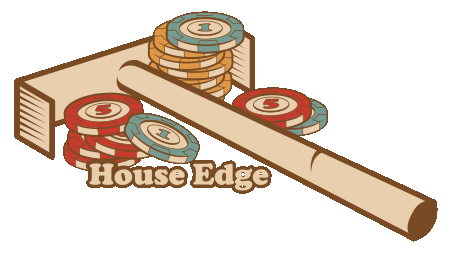Gambling has been a popular form of entertainment for centuries, with millions of people trying their luck at various casino games. Whether you’re a seasoned gambler or just starting out, it’s crucial to understand the concept of the house edge.
What is House Edge?
The house edge is a mathematical advantage that casinos have over players in every game they offer. It represents the percentage of each wager that the casino expects to retain over the long run. This advantage ensures that, in the long term, the casino will always make a profit.
How House Edge Works
Let’s take a look at an example to better understand how the house edge works. In a game with a house edge of 2%, a player who bets $100 can expect to lose an average of $2. This doesn’t mean that every individual will lose exactly $2, but rather that the casino will retain $2 for every $100 wagered by all players collectively.
Games with High House Edge
Some casino games have a higher house edge than others. Slot machines, for instance, often have a house edge ranging from 5% to 15%, depending on the specific machine and casino. Other games like Keno and American Roulette also tend to have a higher house edge compared to games like Blackjack or Baccarat.
Games with Low House Edge
If you want to maximize your chances of winning, it’s important to choose games with a lower house edge. Blackjack, for example, is known for having one of the lowest house edges among casino games, typically around 1%. Craps and Baccarat are also considered to have relatively low house edges when played with optimal strategies.
Strategies to Minimize House Edge
While you can’t eliminate the house edge entirely, there are strategies that can help minimize its impact on your gambling experience. It’s crucial to understand the rules and odds of each game you play. Learning optimal strategies for games like Blackjack and using betting systems in games like Roulette can improve your odds and reduce the house edge.
The Importance of Bankroll Management
Another key factor in navigating the house edge is effective bankroll management. Setting a budget for your gambling activities and sticking to it ensures that you won’t wager more money than you can afford to lose. This way, even if you encounter a streak of bad luck, you won’t risk significant financial issues.
Conclusion
Understanding the house edge is vital for every gambler, as it directly impacts your chances of winning or losing. By selecting games with a lower house edge and employing appropriate strategies, you can enhance your odds and enjoy your gambling experience while mitigating potential losses.
